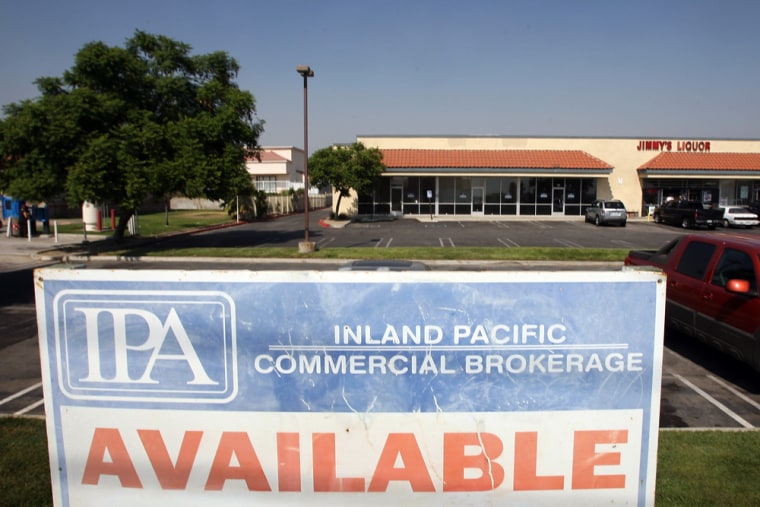Over the next several years, failed commercial real estate loans could litter American cities with empty stores and office complexes, cause hundreds of bank failures and weaken the economy, a watchdog report says.
Banks face up to $300 billion in losses on loans made for commercial property and development, according to a report released Thursday by the Congressional Oversight Panel. The panel monitors the government's efforts to stabilize the financial system.
The report says the defaults could lead to reduced lending and cause the eviction of families from rental properties. Bank failures also could contribute to job losses and hurt the economic recovery.
Smaller banks are more vulnerable to the losses than their larger Wall Street counterparts. That's because commercial real estate makes up a larger portion of their portfolio.
The Federal Deposit Insurance Corp., which manages bank failures and insures deposits, is under stress that will intensify over the next few years, panel chairwoman Elizabeth Warren said in a call with reporters.
Small- and mid-size banks have been failing at the fastest rate since the savings and loan crisis of the 1980s and 1990s. The failures are due mostly to bad loans they made for commercial projects.
Banks often lent too much for land and buildings whose prices were inflated by a real estate bubble. They also relied on rosy assumptions about the profitability of retail and office projects and did not consider the possibility of a severe recession.
Commercial property values have fallen more than 40 percent in the past three years, the report notes.
Some have been unable to pay the loans. Others have stopped paying because they now owe more than the properties are worth. Losses are mounting for banks, more of which will close. That could spell trouble for the economic recovery, said Warren, a Harvard law professor.
"If hundreds more community banks go under, the effect would be to ... dump sand in the gears of the economic recovery," she said.
Unlike residential mortgages, commercial loans are refinanced every three to five years. Between 2010 and 2014, about $1.4 trillion in commercial real estate loans will come due for refinancing, the report says. For nearly half of them, borrowers could struggle to get new financing because they'll owe more than the properties are worth.
'Rush for profit'
The report attributes the looming crisis to failures of bank management and supervision. It says banks made loans based on property values inflated by the real estate bubble. They sometimes acted carelessly "in a rush for profit," the report says. Banks and their regulators failed to consider the possibility of reduced consumer demand from a severe recession, the panel says.
The panel criticizes the Treasury Department and bank supervisors for not putting smaller banks through "stress tests" like those done last year on America's 19 largest banks. Warren notes that Treasury Secretary Timothy Geithner resisted calls to conduct public stress tests of smaller banks.
The Treasury Department referred to comments by Geithner that bank regulators routinely conduct such assessments confidentially.
Warren also noted that last year's tests gauged banks' strength only through 2010. The commercial real estate threat looms largest in 2011 and beyond.
The report says loan failures could weaken the financial system because banks that fear major losses will be less likely to lend. Economic recovery depends on the free flow of credit.
The report offers no specific recommendations. But it calls on the Treasury to enact a comprehensive plan to handle the expected crisis.
The bipartisan panel is one of three oversight bodies Congress mandated for the bailout at the height of the financial crisis in October 2008. It makes periodic assessments of how the government is managing the rescue program.
The bailouts also are subject to review by the Special Inspector General for the Troubled Asset Relief Program and the Government Accountability Office.
